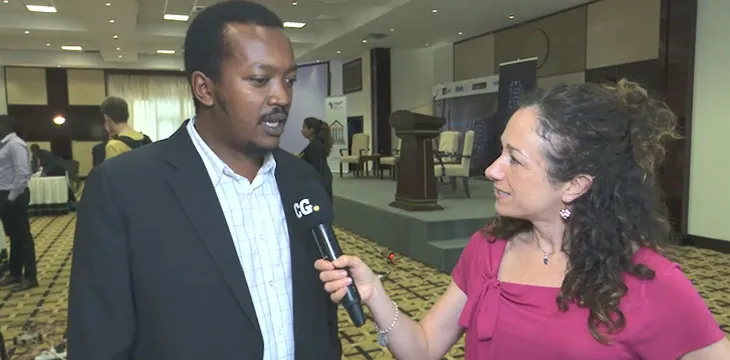|
Getting your Trinity Audio player ready...
|
CoinGeek’s Becky Liggero spoke with Norbert Haguma, who discussed how blockchain was going to revolutionize systems in Africa.
With technology constantly getting more affordable, developing countries stand to gain the most. Whereas some may adopt innovations for the sake of greater convenience, others embrace these as necessities for uplifting their communities.
Norbert Haguma, who headed the blockchain hub at the Transform Africa summit in Kigali, Rwanda last May, has a perspective of both insider and outsider to Africa’s economic situation, having lived in Asia for over a decade. He believes blockchain technology will play a huge part in the future development of his home continent.
“Africa is trying to create CFT, a continental free trade area… I don’t think we’ll be able to achieve that without some kind of blockchain solution,” Haguma said.
Haguma noted how Africa, with its 54 countries, has an assortment of systems in place, particularly with regard to currencies, some of which have been more susceptible to inflation than others. He said, “Having a way that people can pay each other in a very easy way would definitely increase trade tremendously.”
Haguma pointed out that trade could be further facilitated with regards to supply chain management, where blockchain-based transactions allow greater certainty, security and trust. “In Africa, we still have infrastructure issues. So when you have your products on the blockchain with the smart contracts, payments are easier, insurance is easier. It just makes the whole process much more easy to manage,” he said.
Haguma hopes more people in his country and other countries in Africa educate themselves, saying, “Africans need to study blockchain, need to explore blockchain, need to understand what it’s about. It has many promises, it has many applications, but we are not yet sure which ones work, which ones don’t, which ones apply to Africa and which ones do not apply to Africa.”
Through conferences such as the Transform Africa summit, Haguma said, “We hope to ignite some kind of curiosity, an interest. We have many students participating; we have many programmers, young programmers. We want to have kind of a critical mass of Africans, especially the youth, who are interested in studying and looking into blockchain, and I have all the trust in them to come up [with] great apps that will solve many African problems.”
If you’re interested in helping the growth of merchant adoption of Bitcoin BCH, join the bComm Association, an industry group that intends to be the focal point for miners, merchants, exchanges, developers and members of the BCH community. Developers and merchants of the Bitcoin BCH community will also be on hand for the first CoinGeek Week happening in London in November. Members of bComm Association can avail CoinGeek Week tickets at discounted prices. To purchase tickets or learn more about CoinGeek Week Conference, visit the official website here.

 07-05-2025
07-05-2025 





